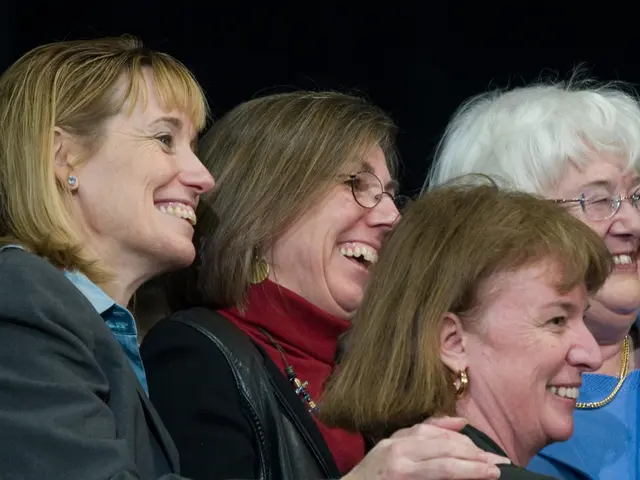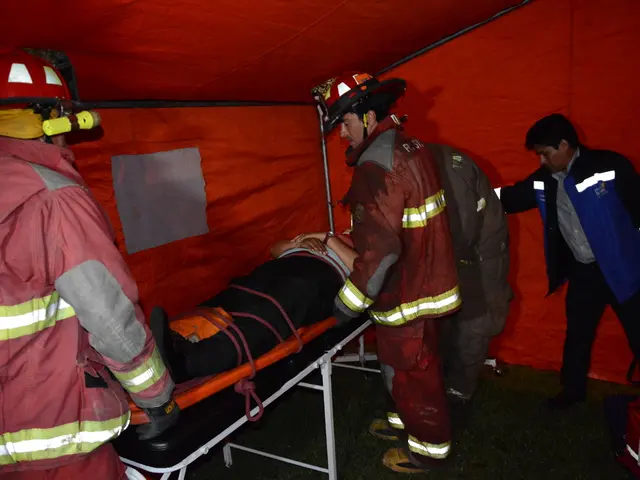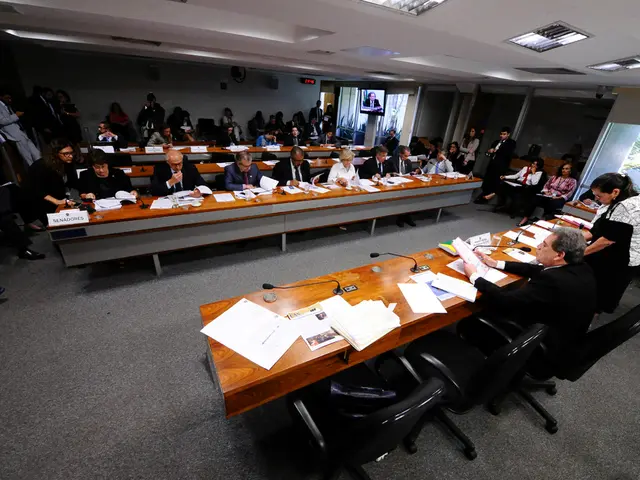Aging brain and memory: Challenging Dementia's Dominance
Memory Unraveled: The Aging Brain and Its Mysteries
Feeling curious about memory and its connection to the aging brain? Dr. Carol Barnes, a renowned neuroscientist, peels back the layers and offers insights that challenge the notion that dementia is inevitable as we age.
Welcome to the world of neuroscience and memory as Dr. Barnes, a Regents' Professor at the University of Arizona, takes us on a fascinating journey through the human brain. This heroine in the male-dominated field of neuroscience has spent nearly five decades blazing a trail for us, producing over 280 peer-reviewed publications.
But this isn't just about the hippocampus, memory, and aging—we're here to question stereotypes and challenge the idea that dementia is an unavoidable aspect of growing older.
So, pack your curiosity and let's dive in!
Dementia, Anyone?
The hippocampus, a key structure in the brain's medial temporal lobe, plays a crucial role in forming new memories and consolidating information. The process of memory consolidation chiefly involves strengthening synaptic connections, particularly through long-term potentiation (LTP)[1][3]. It's also been linked to pattern separation, which helps distinguish between similar memories[1].
But what's the deal with memory and aging?
As we age, the hippocampus tends to shrink, and neurogenesis (the creation of new neurons) decreases, which can lead to mild memory decline[3]. But here's the twist: many older adults retain the ability to recall remote memories and navigate familiar environments, while struggling more with new memories and recent events. And guess what? Aging doesn't mean memory loss is around the corner for everyone[3].
Cognition, Lifestyle, and Our Brain's Magic
Factors like genetics, lifestyle, and overall brain health play a significant role in age-related memory changes. While there's still room for mystery and discovery, one thing is clear: a healthy lifestylecan help slow or even prevent significant memory decline[3]. Engage your mind, exercise your body, eat well, and manage your stress—it all makes a difference!
Now, before you think dementia is a normal part of aging, consider that severe memory loss is often a sign of underlying pathology, like Alzheimer's disease, rather than age alone[1][3].
So, What About Dementia?
Not everyone overs 70 years old suffers from dementia! In the United States, only 14% of those aged 71 and above show signs of dementia, with Alzheimer's disease being the most common[3]. This means that 86% of the older population doesn't have dementia[3].
It's time to shatter stereotypes and reframe our understanding of aging and memory loss.
Unveiling The Mysteries
So, why do our memories get worse as we age? Three reasons seem to be at play:
- Fewer synapses: Normal aging leads to a decrease in actual synapses or functional synaptic contacts[3]. Both losses could lead to malfunctions in network communication and changes in behavior.
- Brain plasticity: As we age, our brains become less able to change and adapt, which impacts memory performance[3].
- Changes to the hippocampal network function: As we get older, our brains are less likely to produce an accurate network activation of memories, particularly in the hippocampus[3].
Breaking the Stereotypes: Memory and Aging
The good news is that older individuals can compensate for memory issues by recruiting additional brain circuits to achieve memory retrieval that's as accurate as that of younger individuals[3]. Don't let outdated notions of brain aging limit your potential or belief in your brain's resilience.
A Brain for Life
The future of brain health lies in harnessing the power of precision medicine to predict health risks and personalized brain health interventions, all aimed at maximizing cognitive healthspan. By embracing a proactive approach, we can increase our quality of life and defy the stereotype that dementia is an inevitability as we age[3].
Your Brain, Your Power
Want to discover how your brain compares to others like you? Take a short memory test online and help scientists find new ways to protect our brains from memory loss as we age[3]. Stay tuned for updates on brain aging and strategies to keep your mind sharp.
Harness your power, and let's redefine memory and aging together.
- Dr. Barnes, a pioneer in the field of neuroscience, has dedicated her career to challenging the notion that dementia is an inevitable part of precision aging, particularly through her research on cognitive healthspan.
- In the quest to unveil the mysteries of memory and aging, it's essential to understand that a healthy lifestyle can plays a significant role in slowing or preventing memory decline, as healthy-and-wellness factors like a proper diet, regular exercise, and stress management all contribute to mental-health and brain health.
- Contrary to common beliefs, not all older adults experience memory issues or dementia. In the United States, only a small percentage (14%) of those aged 71 and above show signs of dementia, highlighting the importance of breaking stereotypes and redefining the norms around aging and mental health.








